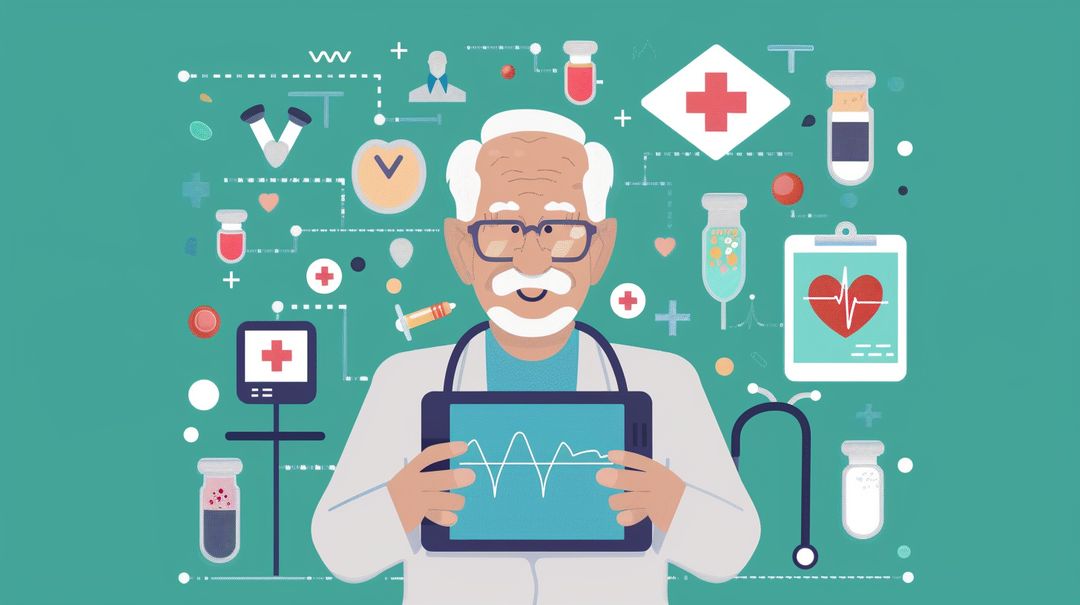In today's rapidly evolving medical technology landscape, digital healthcare has become an indispensable part of our daily lives. Especially for the elderly population, digital healthcare not only offers a new platform for health management but also becomes their new companion in leading a healthy life.
The introduction of this technology brings more convenient and safer medical service experiences for the elderly.
Digital healthcare refers to the process of collecting, storing, managing, and transmitting medical and health information using information technology and electronic devices. It includes telemedicine, health management applications, wearable devices, and more, aiming to improve the efficiency and quality of medical services while providing patients with more personalized health management plans.
As people age, they may face various health issues, from managing chronic diseases to daily health monitoring, all of which require more attention and care. Traditional medical models often require the elderly to frequently travel back and forth to hospitals, which is not only time-consuming but also a challenge for those with mobility issues. The emergence of digital healthcare can address these concerns.

Telemedicine Services: Through video calls and online consultations, the elderly can receive diagnoses and treatment recommendations at home, reducing the inconvenience of hospital visits.
Health Monitoring: Wearable devices and health management apps can monitor vital signs such as heart rate and blood pressure in real-time and alert users to any abnormalities.
Disease Management: For the elderly suffering from chronic diseases, digital healthcare platforms can help them record medication usage, track disease progression, and provide customized health management advice.
Health Information: Digital healthcare platforms offer a wealth of health education resources, helping the elderly understand disease information, healthy diets, and appropriate exercise knowledge.
Despite the conveniences brought by digital healthcare to the elderly, there are also some challenges, such as the difficulty of operating digital devices, personal privacy, and data security issues. To overcome these challenges, efforts from the government, society, and families are needed to provide relevant training and support, ensuring that the elderly can use digital healthcare services safely and effectively.
With continuous advancements in technology, the functionalities of digital healthcare will become more powerful, and its application scope will expand even further.
For the elderly, digital healthcare is not just a tool or service; it represents a new lifestyle that makes health management more proactive, efficient, and personalized. Moving towards digital healthcare, we have every reason to believe that the future for elderly health management is bright and promising.